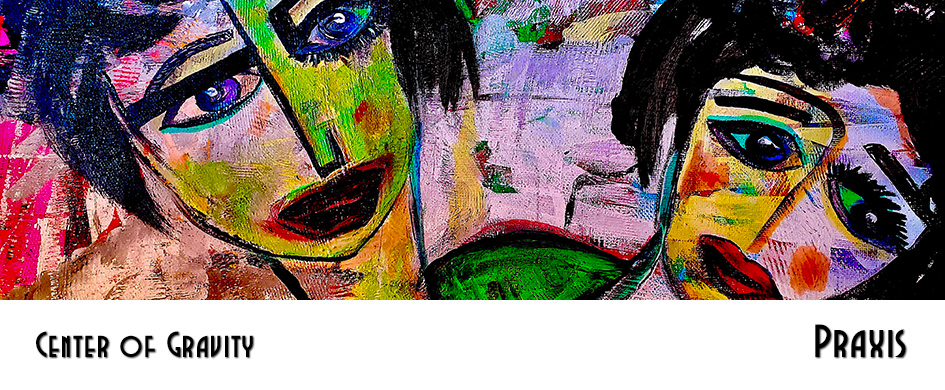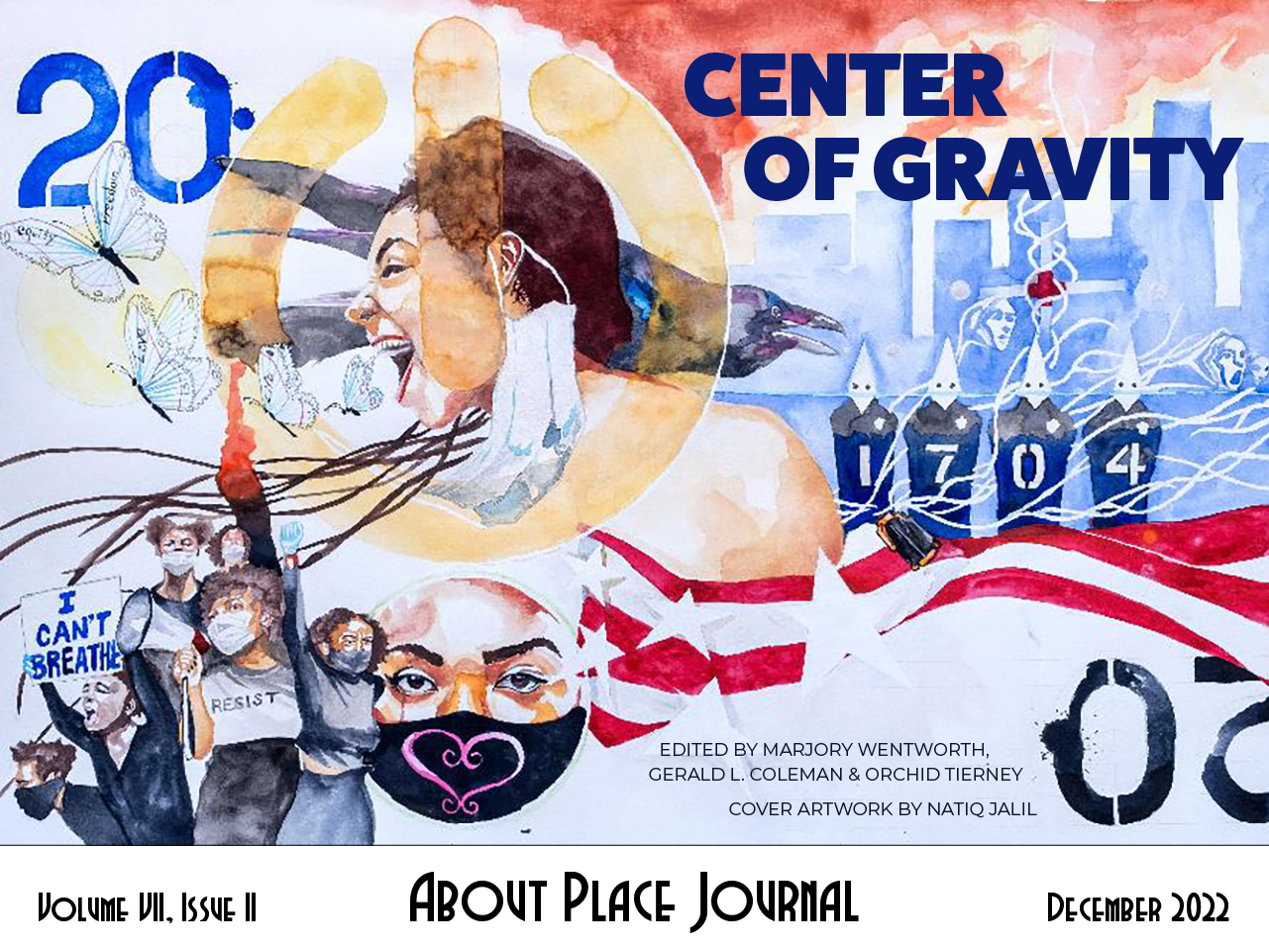too far to one side, or starting to straddle
a slope in my own back yard the way I’d always done,
to simply pull weeds. And it wasn’t only my thighs
bit by bit growing so weak that when—
just steps from my own front door—I bent to gather
bright red Sweet Gum leaves and fell, I had to crawl
to the tree’s slender trunk, hand
over hand, I had to pull myself up. No, the country
my head was in, the one in which I was born
was suddenly no longer home. Nonchalance,
the language I spoke there. What were priorities?
Household bills piled up, unopened. And when a dear
friend’s final breath chugged ever closer?
What difference would my presence have made?
To ask me why my words careened all over
every conversation, bounced off bewildered ears
like billiard balls in search of a pocket, would have been
to send me looking in darkness for a switch I didn’t
care enough to find. Oh, patient well-wishers, and you
who fell away, how much store we put in logic,
in stringing the very right words in the very right order,
in being able to open a simple post and circle necklace clasp.
But when the seat of Reason has been invaded, taken
hostage by a foreign power?
Where do we stand?
What should have been New York Finger Lakes between
my cranial lobes, were craters of the moon, fluid-filled.
What chance had Free Will against that small, benign onion
my surgeon, one bright morning, peeled, layer by layer, away
from the tip of my spinal cord, under the window
he’d cut in my skull, and removed, and later screwed back in?
Twelve years, he said, maybe
fifteen, that silent blockade had been snarling
traffic at Grand Central Station of Mind and Motion.
Or are these words
too nonchalant, still? Oh,
gentle readers, whose language, whose customs
I’m still relearning,
may you make of this tale a window
into the strangeness of countless others among us
who are not at home among us, for reasons beyond
their own control, for whom rescue may not ever come.
May you be kind. They do not will it so.


